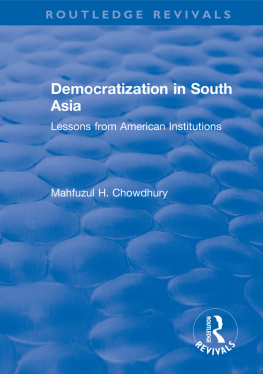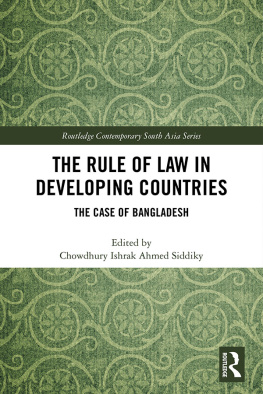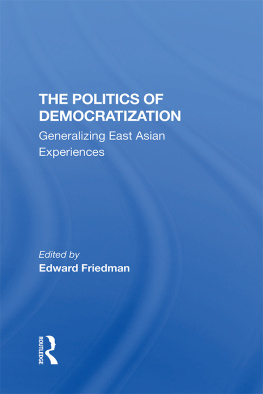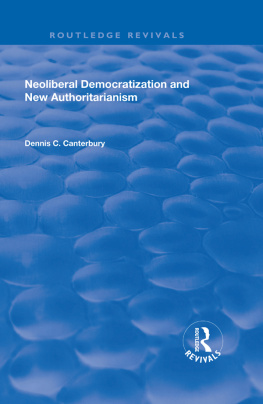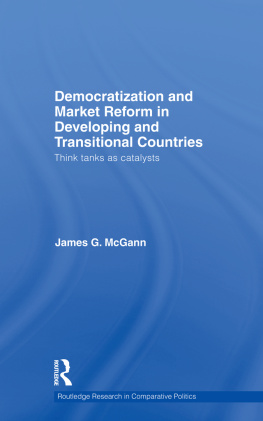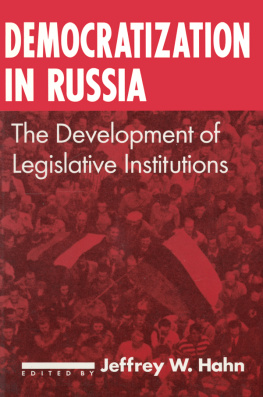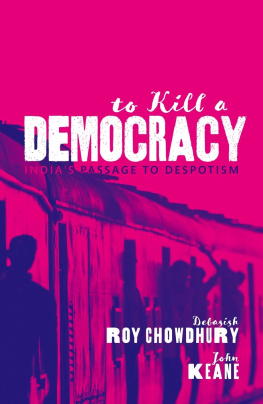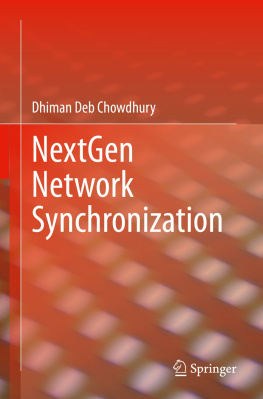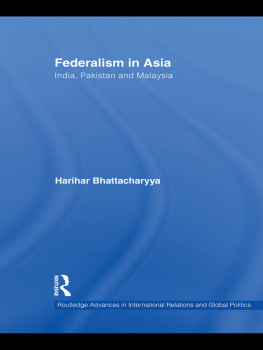First published 2003 by Ashgate Publishing
Reissued 2018 by Routledge
2 Park Square, Milton Park, Abingdon, Oxon OX14 4RN
711 Third Avenue, New York, NY 10017, USA
Routledge is an imprint of the Taylor & Francis Group, an informa business
Copyright Mahfuzul H. Chowdhury 2003
Mahfuzul H. Chowdhury has asserted his right under the Copyright, Designs and Patents Act, 1988, to be identified as author of this work.
All rights reserved. No part of this book may be reprinted or reproduced or utilised in any form or by any electronic, mechanical, or other means, now known or hereafter invented, including photocopying and recording, or in any information storage or retrieval system, without permission in writing from the publishers.
Notice:
Product or corporate names may be trademarks or registered trademarks, and are used only for identification and explanation without intent to infringe.
Publisher's Note
The publisher has gone to great lengths to ensure the quality of this reprint but points out that some imperfections in the original copies may be apparent.
Disclaimer
The publisher has made every effort to trace copyright holders and welcomes correspondence from those they have been unable to contact.
A Library of Congress record exists under LC control number: 2002034490
ISBN 13: 978-1-138-70787-0 (hbk)
ISBN 13:978-1-315-19874-3 (ebk)
Democratization is a very important subject in the modern world especially in the post cold war period when many countries are aspiring to be democratic. But problems of democratization are multifarious and vary from country to country or culture to culture. Yet in the contemporary world more countries are either democratic or in the process of democratization. It is, therefore, very important to examine, evaluate and understand the democratization process in the developing countries in the South Asian region. These countries are in economic and technological considerations not developed, but because they are aspiring to be democratic or maintaining the minimum conditions of a democratic political system meaning elected and constitutional governments, reasonable freedom of press, multi-party system, guaranteeing relatively more freedom and civil rights than in the non-democratic systems - why should they be not considered politically more developed than many other countries which are not so. With this framework of analysis in mind, I have developed the argument that if there is the existence and practice of the minimum requirements of a democratic political system then a country or a political system may be considered as politically more developed even though it is economically and technologically less developed than a country which is not democratic in nature.
In doing this I have studied the South Asian countries: Bangladesh, India and others and have attempted to focus on the problems of consolidation of democracy and democratization processes in these countries. While doing this I have focused on the political sectors such as political parties, leaders, parliaments more specifically than other sectors like bureaucracy, economy or civil society. Because the experiences of democratization of these countries have fairly demonstrated the facts that the main problems are now in the above mentioned political sectors and they have to be corrected rationally and reasonably so that they will be able to make necessary reforms in the bureaucracy, economy, legal and other aspects of civil society for consolidation of democracy in these countries. Therefore, I have suggested some measures, which may contribute positively in the democratization processes of these countries. These measures include among other things adoption of some of the American political institutions such as stronger parliamentary committees, subcommittees, introduction of public hearings in the legislative and policy making process, primaries in the nomination process of candidates for the elected positions, and more democratization within the parties and parliaments.
I had undertaken this project after my return home from the United States having my Ph.D. in 1993. But my preoccupation with many other projects and performing responsibility of the Chair of the Department of Political Science at Chittagong University between 1998 and 2002 in addition to my normal teaching load compelled me to defer this project. I am grateful to the J. William Fulbright Foreign Scholarship Board of the USA for granting me a senior visiting scholarship for the period 1999-2000, which enabled me to complete this project. I am very thankful to the colleagues and friends of the Department of Political Science at the Southern Illinois University-Carbondale (SUI-C), U.S.A., especially to Professor Uday Desai, Chair of the Department for making my life comfortable during my stay there and providing me with a very congenial and friendly environment to conduct my research on the project. My thanks are also due to Professor John Jackson of the same Department at USI-C and Interim Chancellor of the University for letting me use his office and personal library. My thanks are also due to Professor William F. Miles, Department of Political Science, Northeastern University, Boston, MA, USA and Professor William Turley, Department of Political Science, SUI-C for writing their brief comments on the book. I also thank former U.S. Senator Paul Simon, currently Director, Public Policy Institute, SIU-C, and Governor Michael Dukakis, Former Governor of Massachusetts and American Presidential Candidate of the Democratic party in 1988 and currently visiting professor in the Department of Political Science at Northeastern University (my alma mater), Boston, MA, for granting me their interviews and giving me insiders' perspectives on various aspects of American politics. I thank an anonymous reviewer of the manuscript of this book for his/her valuable comments, which were very helpful in improving the content and form of the manuscript.
My teachers, colleagues and students at Chittagong University have been constant sources of inspiration for me to undertake and complete such research projects. My teacher Professor R.I. Choudhury has always been a source of developing critical perspectives on serious matters of research to me.
My preoccupation with research projects such as this one means a long period of committing injustice to my wife Shamim and my daughter Tajnin in many ways. While working on such a project, I inevitably mess up our home with all kinds of papers, books and materials and leave the unpleasant job of cleaning my mess mostly to my wife and daughter, but completion of this project and publication of this work is definitely a matter of great pleasure for them.
I thank Ashgate for publishing this book. Despite my enormous efforts to make the manuscript perfect I, alone, am responsible for the remaining errors.
Mahfuzul H. Chowdhury
Chittagong, Bangladesh

